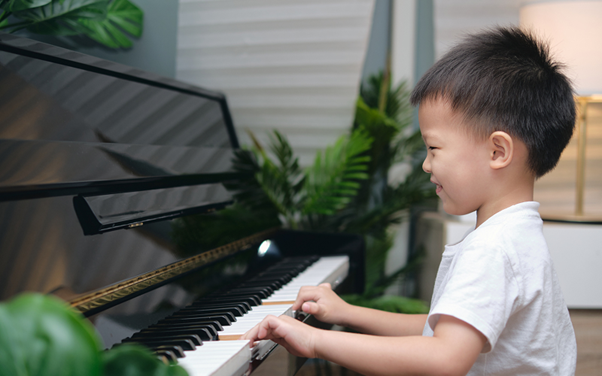The piano has long been a favourite first instrument for children. It offers a clear layout, straightforward sound production, and a wide range of notes. Unlike some instruments that require complex techniques to produce a decent tone, pressing a key delivers an immediate result. This helps young learners connect effort with outcome quickly, making practice less frustrating.
Parents often search for structured music classes in Singapore that provide children with a balanced introduction to rhythm and melody. In many cases, piano is recommended as the starting point because it builds a solid foundation for learning other instruments later. The layout of the keyboard is visual, which makes it easier for children to understand scales, chords, and patterns.
Building Confidence Through Sound
Learning the piano gives children a sense of control and achievement. Even simple tunes can sound complete, giving young players the confidence to continue. This contrasts with instruments like the violin, where beginners may struggle with pitch and tone for months before producing pleasant sounds.
Confidence matters because it keeps motivation alive. When kids feel successful early on, they are more likely to stick with their lessons. With structured guidance, such as piano lessons in Singapore, children not only develop musical ability but also patience, memory, and focus. These skills carry over into schoolwork and other activities, showing that the piano is more than an instrument; it is also a training ground for discipline.
A Gateway to Musical Literacy
One key reason piano is often chosen first is its role in teaching children to read music. Each note on the staff connects to a visible key on the instrument. This one-to-one link helps young learners grasp the basics of notation more clearly than with other instruments.
Many music classes in Singapore integrate piano as the entry point for theory lessons. By learning how to match notes on a page with keys on the instrument, children build strong literacy skills. Once they understand these principles, transitioning to other instruments becomes easier. Piano also helps students hear harmony and rhythm in a direct way, which supports growth in ear training.
Coordination and Brain Development
Playing piano demands that children use both hands independently. This develops coordination and strengthens connections in the brain. Studies show that music training improves memory, problem-solving, and concentration. For children, this means better performance not just in music but across other subjects.
During piano lessons in Singapore, teachers often design exercises that gradually increase the challenge. At first, children may play with a single hand. Over time, they combine hands, read notes, and keep time simultaneously. These skills shape their ability to multitask and process information effectively.
Flexibility Across Genres
The piano is not tied to one style. Whether a child prefers nursery rhymes, pop songs, or classical pieces, the instrument adapts with ease. This flexibility makes it easier to keep lessons engaging. Children can request to learn their favourite tunes, which keeps practice fun.
The broad range of the instrument also means children can play melodies and harmonies on their own without needing accompaniment. This self-sufficiency gives them independence in practice and allows parents to enjoy hearing complete songs during home sessions.
A Family-Friendly Instrument
Parents often appreciate that the piano offers a relatively gentle learning curve. The sound is clear, and mistakes are not as harsh on the ear compared to some other beginner instruments. Families also find it easier to follow along with practice, as the keyboard layout is intuitive enough for non-musicians to understand.
For those who want to involve their children in music from an early age, music classes in Singapore frequently highlight piano as the best option for beginners. The instrument’s design makes it easier to start at a young age, while the structured lessons ensure steady growth.
Why Local Lessons Matter
While online tutorials are common today, structured piano lessons in Singapore remain valuable. Teachers provide personalised feedback, correct posture, and offer repertoire that matches the child’s skill level. In-person guidance helps avoid bad habits that can be difficult to fix later.
Local schools also provide opportunities for performances and group recitals. These experiences build confidence, social skills, and stage presence. They also encourage students to practise with a goal in mind, adding structure to their learning journey.
Hitting the Final Note
Choosing piano as the first instrument is considered to be convenient when thinking about music lessons. It sets children on a path that combines fun, skill, and lifelong benefits. The instrument offers a strong base for musical growth, while also supporting cognitive development and discipline.
Parents looking for the right way to start their child’s musical journey will find the piano a dependable choice that strikes the perfect chord between simplicity and depth. Contact Sonare Music School to enrol your child in piano lessons that spark both learning and joy.


